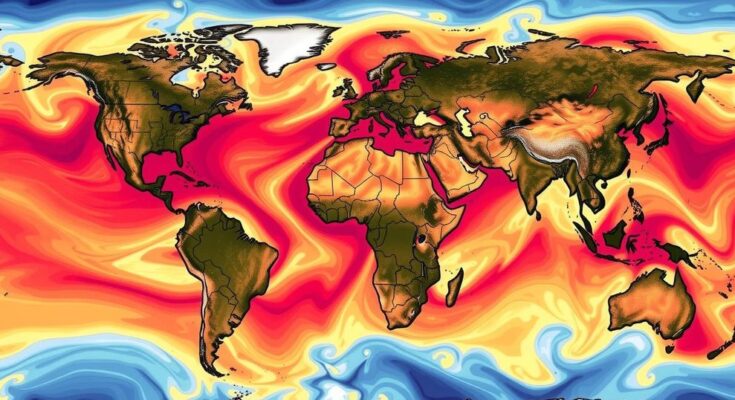In 2024, climate change has introduced an average of 41 additional days of dangerous heat globally, linked to record-breaking temperatures and increased extreme weather events. This crisis has predominantly affected impoverished regions and brought attention to the often underreported heat-related fatalities. Experts stress that without immediate action to combat climate change, these trends are expected to worsen significantly, endangering lives and livelihoods worldwide.
In 2024, human-induced climate change has resulted in an alarming increase of 41 days of extreme heat experienced globally, as noted by a team of scientists from World Weather Attribution and Climate Central. This year, the world witnessed a series of hazardous weather events, with temperatures reaching unprecedented levels, making it potentially the hottest year on record. The analysis indicates a troubling correlation between climate change and the rise in frequent severe weather patterns, including heatwaves, tropical cyclones, and heavy rainfall, impacting millions of lives and livelihoods worldwide.
The data underpinning this report reveals that several regions faced extreme heat conditions for over 150 days due to climate change, with particularly severe impacts felt in the most vulnerable nations. This has raised concerns, as unnoticed heat-related deaths often go underreported. The scientists urge that proactive communication is essential to raise awareness of these dangers and that heatwaves remain among the deadliest climate-related events.
Significantly, climate change has pushed the Earth closer to breaching the critical threshold of 1.5 degrees Celsius established in the Paris Agreement, with experts warning that this could soon occur. The thorough examination of 29 extreme weather events in 2024, which resulted in over 3,700 fatalities, found that 26 of these events had undeniable links to climate change. While the natural El Niño phenomenon played a role, it was concluded that human-caused climate change predominantly exacerbated the severity of weather patterns observed this year.
The findings released by the scientific community underscore the crucial influence of human activities on climate change and its ramifications for global weather patterns. With 2024 marked by record-breaking temperatures and severe weather events, understanding the role of climate change in these phenomena becomes imperative. The research indicates that immediate action is necessary to mitigate the further impact of climate change on daily life and the environment, stressing the importance of adaption and preparation in vulnerable regions worldwide.
The analysis conducted by the World Weather Attribution and Climate Central highlights the devastating impact of climate change, which has contributed to an average of 41 additional days of dangerous heat globally in 2024. The associated rises in extreme weather events and fatalities underscore the need for urgent action to reduce greenhouse gas emissions and better prepare for the ongoing challenges posed by climate change. Enhanced awareness and adaptive measures are essential to safeguard vulnerable populations as climate extremes continue to escalate.
Original Source: abcnews.go.com




